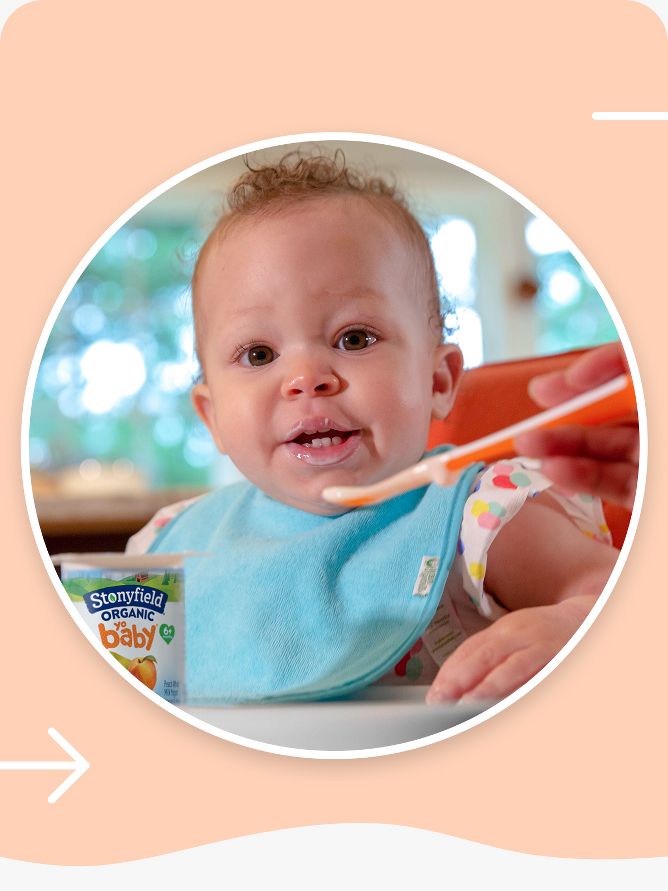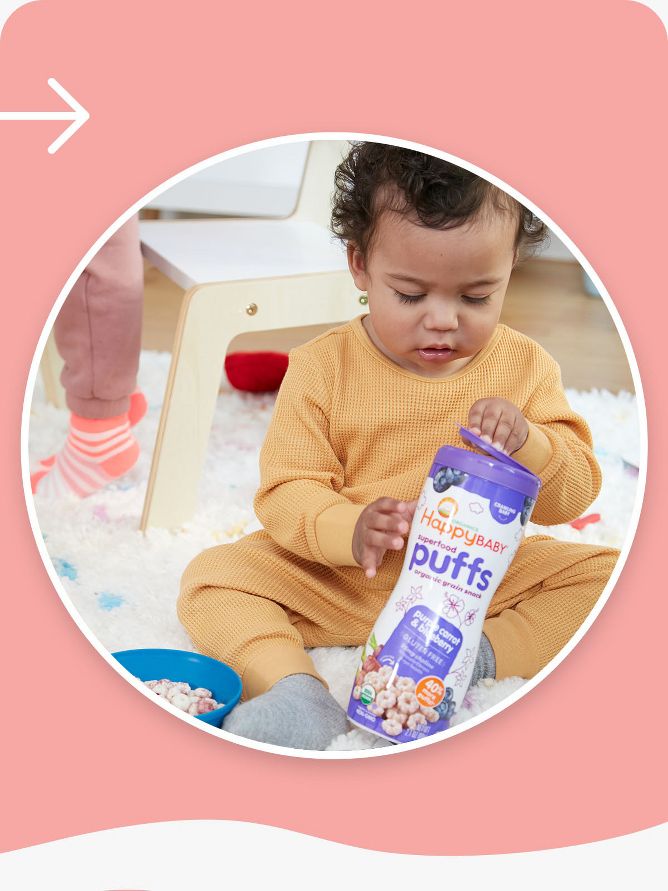When to Introduce Baby to Solid Foods

Support your little one every step of the way in their nutritional journey
Wondering where to start with solid foods?

Start good eating habits early by getting your toddler excited about the right food
Help nourish their growing bodies

Nutrition
The American Academy of Pediatrics states that breast milk and formula are the sole sources of nutrition for your baby during the first 6 months. Then it’s time to introduce baby to the world of solid foods! Eating solids at this age is mostly about letting baby explore new flavors and textures and less about getting in calories, so follow their cues and have fun.

Brain development
According to the Urban Child Institute, your baby’s brain doubles in size in the first year! You should look for foods with key nutrients to support their growth, per American Academy of Pediatrics’ guidance. DHA is the most abundant fatty acid in the brain—and is essential for brain health. Choline helps support brain health and is found in eggs and fortified in various baby snacks. The body doesn’t produce this nutrient, so little ones need it in their diet. Omega-3 (ALA) is an important fatty acid found naturally in foods such as ground flaxseed.

Palate development
When your baby is around 9 months of age and starting Stage 3 foods, exposing them to different flavors and textures may help them learn to love all types of food and become an adventurous eater. This can help when eating meals as a family. According to the American Academy of Pediatrics, family meals can have positive effects on the development of children.

Dexterity
The Mayo Clinic states that your baby could start feeding themselves at around 6 months. Signs of readiness include grabbing the spoon while you are holding it, reaching for food and grabbing objects to bring to their mouth. Start by placing small pieces of soft foods (age-appropriate or melt-in-mouth baby snacks) within reach to help them develop the fine motor skill of grabbing with their thumb and forefinger, called the pincer grasp. It’s recommended that you do not give your baby any food that requires chewing, as it could be a choking hazard.

Gut health & constipation
It’s common for your baby to get constipated when you start them on solid foods. Foods high in fiber, such as prunes or whole-wheat pasta, can help provide relief.
Navigating picky eating habits
According to the American Academy of Pediatrics, picky eating is a normal developmental stage for toddlers. They’re starting to develop food preferences, which can change from day to day. If you’re concerned about your child’s diet, talk to your pediatrician. They may suggest supplementing with a nutritional drink to ensure your toddler is getting the necessary nutrients to grow and develop.
3 steps to catch up on growth
Learn how to understand your baby’s feeding cues
7 ways your baby says ‘I’m hungry’
12 ways your baby says ‘I’m getting full’

Tip

Look for the WIC tag located on the shelves of your local store
- Content provided in this guide is compiled from the American Academy of Pediatrics, HealthyChildren.org (content produced by the American Academy of Pediatrics), American Academy of Family Physicians, HealthLink BC, National Center for Biotechnology Information, the Mayo Clinic, The Urban Child Institute, the U.S. Dept. of Health & Human Services, and the Centers for Disease Control & Prevention. The information is intended for educational purposes only. Always consult your pediatrician or other medical professionals on nutritional and care advice.








